This amazing mother has 9 children, including 3 with special needs
Special needs mom: A look inside
Tahirah Mohamed is a stay-at-home mother while her husband, Mr Noor Irwan Rashid, 43, is a facility manager at Singpost.
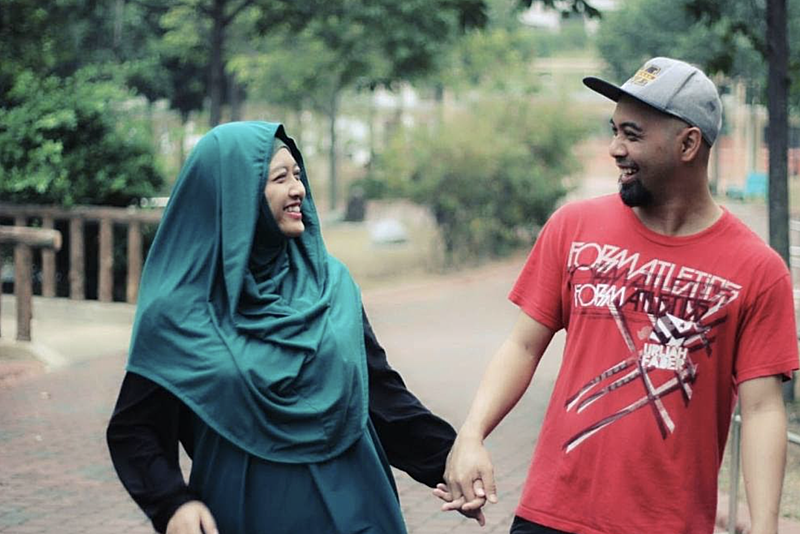
They have 9 children aged between 1 and 19 years old. Their eldest son has autism and Obsessive Compulsive Disorder (OCD), their second son has ADHD (hyperactivity disorder) and their fifth child has autism. Their twins and three-year-old, Muhammad Abbas, have Global Development Delay (GDD).
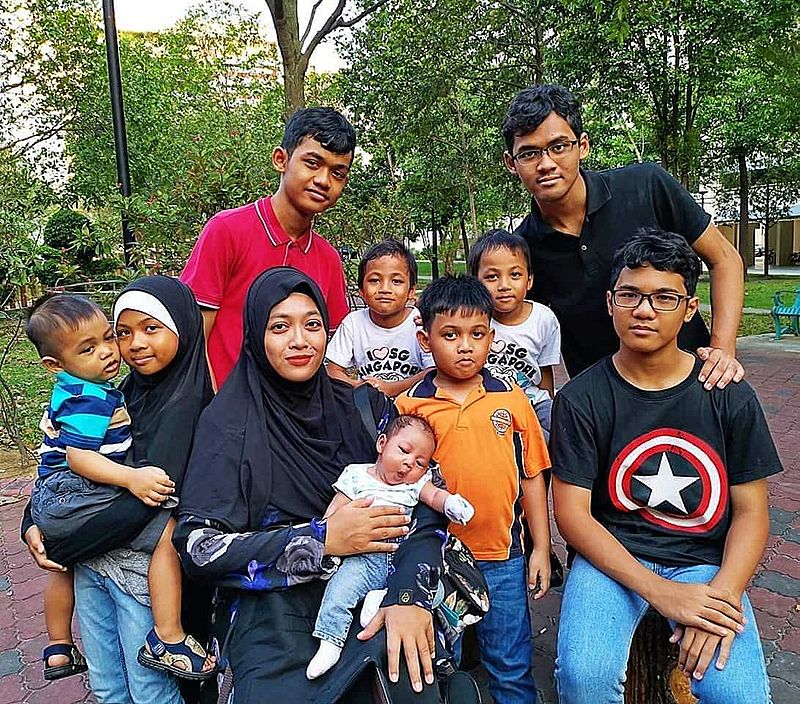
Establishing a daily routine
Every day at 5.30am, her older children will shower and solat (pray) while Tahirah prepares their breakfast. After they leave for school, her husband and daughter will be the next to get ready for work and school. After they leave, she will have breakfast with her youngest children.
“They listen to Asma’ul Husna (99 names of Allah) on replay and watch cartoons while I quickly do minimal housework. Major housework will be done during the weekend with the rest of the family. If I have enough time, I will play with my children or read to them.”
Two times a week, Tahirah sends the twins and Abbas for the Early Intervention Programme for Infants and Children (EIPIC). When the twins do not have EIPIC, they attend school.
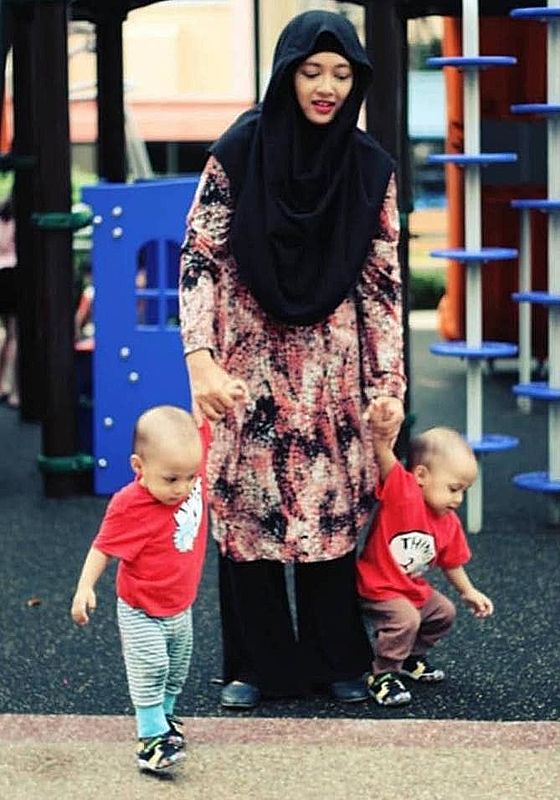
By noon, all the children return home. The older boys do their work independently while Tahirah helps her oldest daughter, Rumaisa, and fourth son, Talhah, with their homework or revision. Right after dinner, she teaches the younger children iqra’ (recitation of the Quran). An Ustazah teaches the older children Quran. After the children sleep at around 10 pm, Tahirah makes time to read or watch TV with her husband. They finally go to sleep at midnight.
The circuit breaker period was an especially challenging time for Tahirah as everyone was at home and needed her attention.
"The first week was really difficult. I had to set a timetable to ensure that each child could continue learning properly at home."
Dealing with her son’s near-death experience
The transition from primary to secondary school is a huge one for any child. However, it is even harder for a child with autism to adapt to a new environment. When her eldest son was thirteen years old, he had an anxiety attack on his way to school. During the episode, he almost got into an accident and lost his life.
“I saw the whole thing happen as I was watching him from my bedroom. I quickly notified his Allied Educator and requested for a follow-up. Alhamdulillah, he reached school safely. Through feedback from his Allied Educator and a note he wrote on the experience, I learned that he needed more time to be ready for school and more reminders of what to look out for.”
Tahirah and her husband comforted him and discussed what had happened. They explained to him that he always has to prioritise his safety. However, as a mother, Tahirah still shudders and sometimes cries when she thinks about the incident.
Coping with the demands of raising children with various needs
Tahirah believes that Allah s.w.t. teaches us to be resilient through tests. All of us are tested in different ways. Allah wants to raise our status and be the best versions of ourselves. When her children were diagnosed, Tahirah felt confused and agitated. However, she immediately said “innalillahi wa inna ilaihi rajiun,” which means “Truly, to Allah we belong and truly, to Him we shall return.”

“This prayer reminds us that we belong to Allah and that He does what He wills (through divine wisdom) with His servants. Therefore, we seek help and put our trust completely in Allah.”
Tahirah grieved by bringing herself closer to Allah. She continues to read as many motivational verses as she can from the Qur’an.
Practising self-care while caring for her children
As a stay-at-home mother with no helper, Tahirah knows that she has to be mentally, physically, emotionally and spiritually strong for her children. Thus, she tries her best to care for herself to avoid burning out. She is also not ashamed to seek help from her mother, husband and older kids when she feels overwhelmed with the younger children.
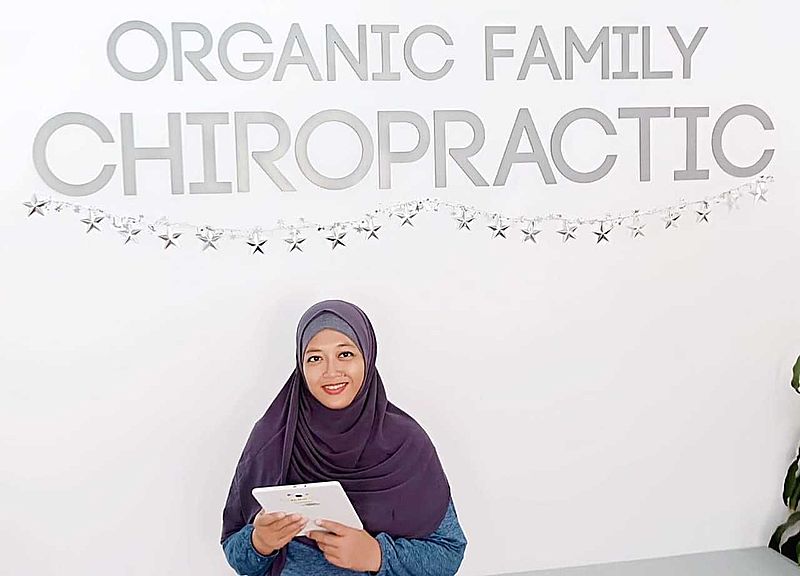
“I love to take a walk in the park because the sun, breeze and greenery are very therapeutic to me. I still do my favourite things and talk to my loved ones and good friends. I don’t want to wait for happiness to come. I want to actively seek it. I am stronger than I ever dreamed possible. Some days, I need to cry and that is okay. With sabr, comes victory.”
Being a proactive mom
Tahirah makes time to go for parenting talks. She is always reading and finding out how she can help her children to develop in the best way possible. She hugs and kisses them as much as she can. She strives to get to know their personalities, likes and dislikes. Tahirah focuses on their strengths and praises them when they make an effort.
Before the COVID-19 pandemic, she would also bring them out to spend time with nature. She strives to give them sensory experiences - she teaches them about various objects, helps them develop dexterity and encourages them to learn the words for every sensation.
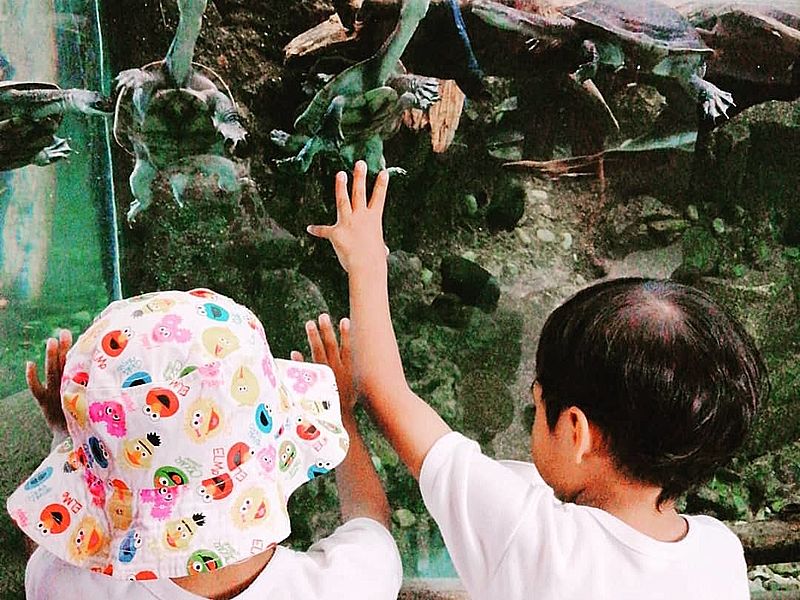
“It’s daunting to go out with all my children. However, for them to grow and develop, they need exposure. They need to learn how to be part of the community. I want them to have the pleasure of learning and adapting. I tell myself that Allah is always taking care of us and that things will get better with every outing.”
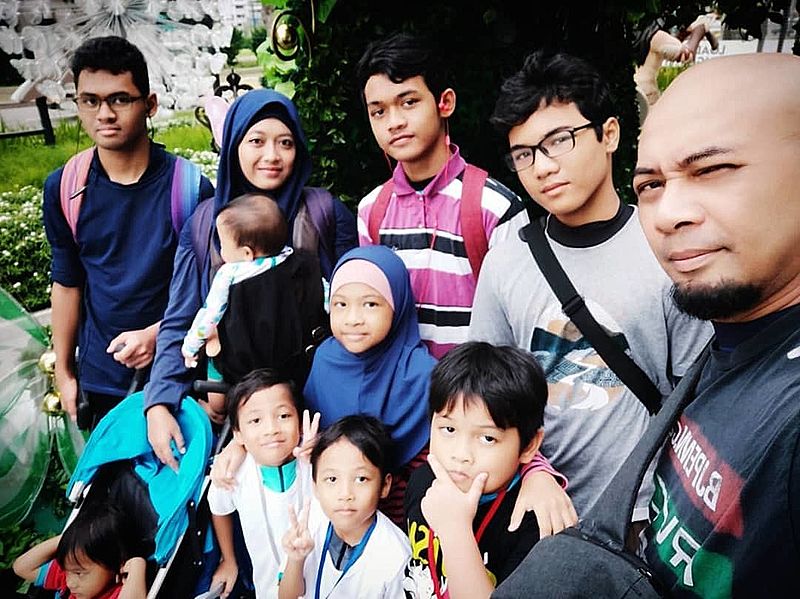
Tahirah appreciates the great support she has received from parents who also have children with special needs. Thus, she pays it forward by sharing her experiences with others, in hopes they know that they are not alone in everything they are facing.
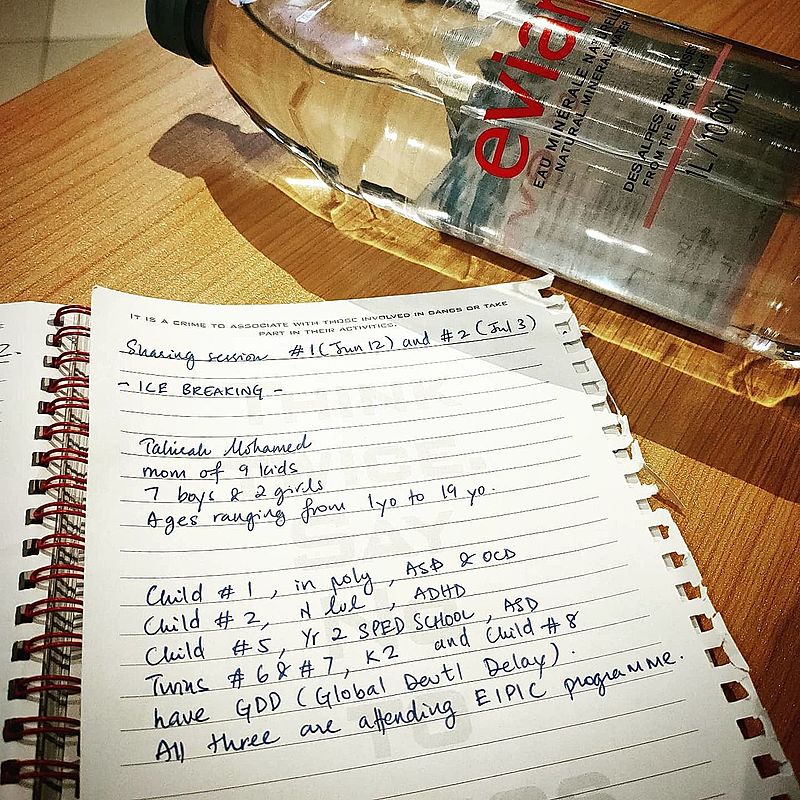
Hoping for a community that embraces children with special needs
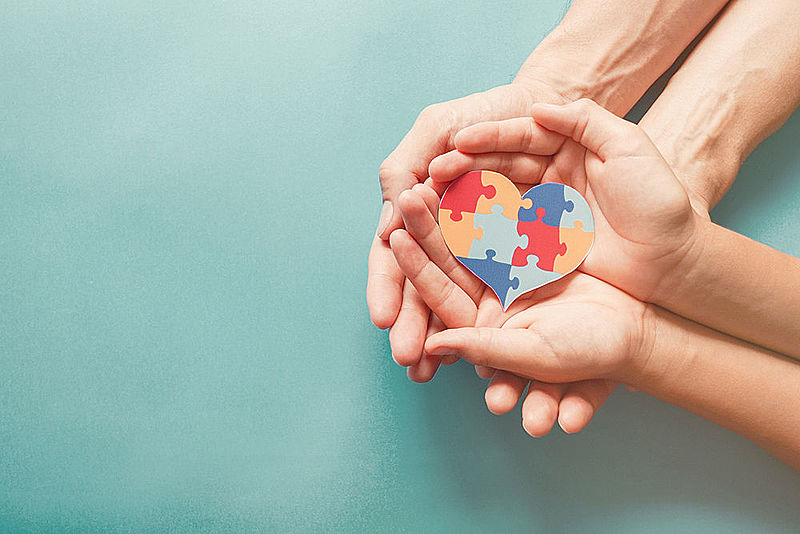
Tahirah truly believes that a nation’s biggest asset is a community that cares. Families of children with special needs need to know that they have our support and that they have a place in the community.
“When you see a child screaming on the floor of a supermarket or a shouting child trying to get away from his mom in the MRT, what is your first thought? Bratty tantrums? Rude meltdowns? Either way, don’t blame the parents and don’t judge the child. ADHD and autism are not caused by poor parenting, eating too much or chaotic family environments. Both ADHD and autism stem from being neurologically different. The brains of people with autism and ADHD are uniquely wired.”
When Tahirah’s son had meltdowns in public, she noticed stares, glares, unwanted whispers and harsh comments. These were extremely hurtful.
“It would be nice if someone could give us a warm smile or even approach us and ask, ‘Are you okay?’ These three little words seem so simple but they mean so much. These words provide comfort to parents of children with special needs.”
However, Tahirah makes sure that she forgives those who do not understand her children.
“With forgiveness, I find peace. I don’t want to lose hope or give up.”

